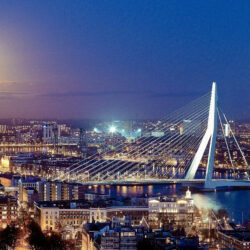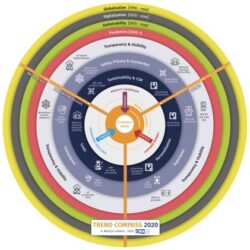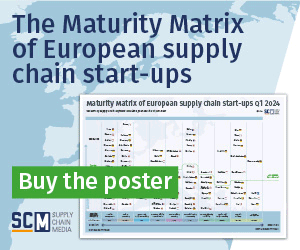The Netherlands is the world’s most globally connected country

The Netherlands is once again the world’s most globally connected country, followed by Singapore and Belgium. This is according to the DHL Global Connectedness Index 2022, a new in-depth report on the state of globalization. Based on analysis of data from 171 countries and territories, the index shows the international flows of trade, people, capital and information.
In the latest DHL Global Connectedness Index, the Netherlands tops the ranking of 171 economies, based on data from 2021. This was also the case in 2018 and 2019, but in 2020 the Netherlands briefly dropped behind Singapore. Over the past two years, the Netherlands’ overall score – which measures the absolute level of connectedness – has fallen by two points (on a scale of 0 to 100).
According to the index, a country is only globally connected if it has large international flows compared to the size of its domestic economy (‘depth’) in combination with international flows that are globally dispersed rather than narrowly focused (‘breadth’). In the 2022 study, the Netherlands ranks 12th on depth (down four places from 2019) and third on breadth (unchanged from 2019).
Four domains
The DHL Global Connectedness Index measures the depth and breadth of international flows in four domains: trade, capital, information and people. The Netherlands ranks second in the trade domain (out of 171 countries), seventh in the capital domain (out of 67 countries), also second in the information domain (out of 159 countries) and ninth in the people domain (out of 110 countries).
In terms of individual types of flows, the Netherlands stands out for the breadth of its capital flows. It is in first place for the breadth of its foreign direct investment (both inbound and outbound), fourth place for the breadth of its foreign direct investment (likewise both inbound and outbound) and second place for the breadth of its outbound equity portfolio.
World leader
According to the report, the Netherlands’ role as a world leader is thanks partly to its strong starting position: it is located in the most connected region (Europe), has an average-sized population, a high gross domestic product (GDP) per capita and excellent access to the sea. However, even taking these demographic and geographic advantages into account, the Netherlands still outperforms the index’s predictions in terms of both its depth and breadth. Nevertheless, despite the country’s various advantages, the researchers point out that the Netherlands’ dominance has become much more precarious in recent years, mainly due to changes in international tax policies.
The DHL Global Connectedness Index 2022 demonstrates that international flows have bounced back and are now well above pre-pandemic levels. Moreover, despite fewer US-China flows, the index finds no broad fracturing of the world economy into rival blocs. Nevertheless, the researchers emphasize that today’s threats to globalization are real and demand serious attention. “It would be a mistake to infer from the recent resilience of international flows that globalization cannot go into reverse. Instead, policymakers should leverage this moment to improve globalization in ways that expand its benefits and better manage its side effects,” states Steven A. Altman, Senior Research Scholar and Director of the DHL Initiative on Globalization, NYU Stern.









